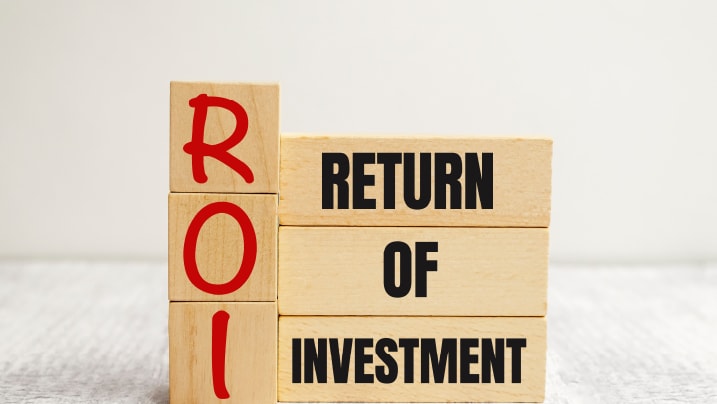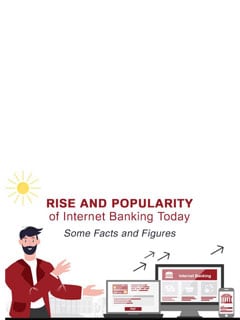CKYC Registry
-
Customer Service Contact us Service request Locate a branch
Find all the help you need
Scan the QR, get our app, and find help on your fingertips

Help CenterSupport topics, Contact us, FAQs and more
-
Login
Are you ready for an upgrade?
Login to the new experience with best features and services
-
Login
Are you ready for an upgrade?
Login to the new experience with best features and services
- Accounts
-
Deposits
IDFC FIRST Bank Deposits
View all Deposits -
Loans
IDFC FIRST Bank Loans
View all Loans - Wealth & Insure
-
Payments
IDFC FIRST Bank Payments
View all Payments -
Cards
IDFC FIRST Bank Cards
View all Cards - Blogs
- Corporate Account
-
Cash Management Services
IDFC FIRST Bank Cash Management Services
View all Cash Management Services - Supply Chain Finance
-
Corporate Lending
IDFC FIRST Bank Lending
View all -
Treasury
IDFC FIRST Bank Treasury
See more details - NBFC Financing
Support topics, Contact us, FAQs and more
- IDFC FIRST Bank Accounts
-
Savings Account
-
Corporate Salary
Account -
Senior Citizens
Savings Account -
First Power
Account -
Current Account
-
NRI Savings
Account -
TASC Institutional
Account -
Savings Account
Interest Calculator
- IDFC FIRST Bank Deposits
-
Fixed Deposit
-
Recurring Deposit
-
NRI Fixed Deposit
-
Safe Deposit Locker
-
FD Calculator
-
RD Calculator
- IDFC FIRST Bank Loans
-
Personal Loan
-
Consumer Durable
Loan -
Home Loan
-
Business Loan
-
Professional Loan
-
Education Loan
-
New Car Loan
-
Pre-owned Car Loan
-
Two Wheeler Loan
-
Pre-owned Two
Wheeler Loan -
Commercial Vehicle
Loan -
Gold Loan
-
Loan Against Property
-
Loan Against Securities
-
Easy Buy EMI card
-
Personal Loan
EMI Calculator -
Education Loan
EMI Calculator -
Home Loan
EMI Calculator
- IDFC FIRST Bank Wealth & Insure
-
FIRST Select
-
FIRST Wealth
-
FIRST Private
-
Mutual Funds
-
Sovereign Gold Bond
-
Demat Account
-
Term Insurance
-
Life Insurance
-
Health Insurance
-
General Insurance
-
Bonds
-
Loan Against
Securities -
Portfolio Management
Service
- IDFC FIRST Bank Payments
-
FASTag
-
Credit Card
Bill Payments -
UPI
-
Funds Transfer
-
Forex Services
-
Pay Loan EMI
- IDFC FIRST Bank Cards
-
Ashva :
Metal Credit Card -
Mayura :
Metal Credit Card -
FIRST Millennia
Credit Card -
FIRST Classic
Credit Card -
FIRST Select
Credit Card -
FIRST Wealth
Credit Card -
FIRST WOW!
Credit Card -
Deals
-
Debit Cards
-
Co-branded Cards
-
Credit Card
EMI Calculator -
FIRST Corporate
Credit Card -
FIRST Purchase
Credit Card -
FIRST Business
Credit Card
- Premium Metal Credit Cards
-
AshvaLifestyle1% Forex₹2,999
-
MayuraLifestyleZero Forex₹5,999
-
FIRST PrivateInvite Only
- Best for travellers
-
MayuraZero ForexMetal₹5,999
-
Ashva1% ForexMetal₹2,999
-
FIRST WOW!Zero ForexTravelLifetime Free
-
FIRST SWYPTravel OffersEMI₹499
-
FIRST Select1.99% ForexLifestyleLifetime Free
-
FIRST Wealth1.5% ForexLifestyleLifetime Free
-
Club VistaraTravelLifestyle₹4,999
-
IndiGo IDFC FIRST Dual Credit CardTravelLifestyle₹4,999
- Max benefits, Free for life
-
FIRST Classic10X RewardsShoppingNever Expiring Rewards
-
FIRST Millennia10X RewardsShoppingNever Expiring Rewards
-
FIRST Select10X RewardsLifestyle1.99% Forex
-
FIRST Wealth10X RewardsLifestyle1.5% Forex
-
FIRST WOW!RewardsTravelZero Forex
-
LIC ClassicRewardsInsuranceShopping
-
LIC SelectRewardsInsuranceShopping
- Reward Multipliers
-
AshvaLifestyleMetal₹2,999
-
MayuraLifestyleZero Forex₹5,999
-
FIRST ClassicNever Expiring RewardsShoppingLifetime Free
-
FIRST MillenniaNever Expiring RewardsShoppingLifetime Free
-
FIRST SelectNever Expiring RewardsLifestyleLifetime Free
-
FIRST WealthNever Expiring RewardsLifestyleLifetime Free
- Rewards & Credit on UPI
-
FIRST Power+FuelUPI₹499
-
FIRST PowerFuelUPI₹199
-
FIRST EA₹NVirtual1% Cashback₹499
-
FIRST DigitalVirtualUPI₹199
-
IndiGo IDFC FIRST Dual Credit CardUPITravelDual cards
- Fuel and Savings
-
FIRST PowerRewardsUPI₹199
-
FIRST Power+RewardsUPI₹499
-
LIC ClassicRewardsInsuranceShopping
-
LIC SelectRewardsInsuranceShopping
- Express and Flaunt
-
AshvaMetal1% Forex₹2,999
-
MayuraMetalZero Forex₹5,999
-
FIRST SWYPEMIOfferMAX₹499
-
FIRST MillenniaRewardsShoppingLifetime Free
- FD Backed rewarding Credit Cards for all
-
FIRST EA₹NVirtualCashback₹499
-
FIRST WOW!Zero ForexTravelLifetime Free
-
CreditPro Balance TransferTransfer & SaveReduce InterestPay Smartly
- IDFC FIRST Bank NRI Forex Solutions
-
Send money to India-Wire transfer
-
Send money to India-Digitally
-
Send money abroad
-
Max Returns FD (INR)
- IDFC FIRST Bank MSME Accounts
-
Platinum Current
Account -
Gold
Current Account -
Silver Plus
Current Account -
Merchant Multiplier
Account -
Agri Multiplier
Account -
TASC Institutional
Account -
Dynamic Current
Account -
World business
Account -
First Startup
Current Account
- IDFC FIRST Bank Business Loans
-
Business Loan
-
Professional Loan
-
Loan Against Property
-
Business Loan for Women
-
Working Capital Loan
-
Construction Equipment Loan
-
Machinery Loan
-
Healthcare Equipment Loan
- IDFC FIRST Bank Business Solutions
-
Payment Solutions
-
Tax Payments
-
Doorstep Banking
-
Point of Sale (POS)
-
Escrow Accounts
-
NACH
-
Payment Gateway
-
UPI
-
Virtual Accounts
-
As per amendment in the Income Tax Rules, PAN or Aadhaar are to be mandatorily quoted for cash deposit or withdrawal aggregating to Rupees twenty lakhs or more in a FY. Please update your PAN or Aadhaar. Kindly reach out to the Bank’s contact center on 1800 10 888 or visit the nearest IDFC FIRST Bank branch for further queries.
-
-
Most Searched
Sorry!
We couldn’t find ‘’ in our website
Here is what you can do :
- Try checking the spelling and search
- Search from below suggestions instead
- Widen your search & try a more generic keyword
Suggested
Get a Credit Card
Enjoy Zero Charges on All Commonly Used Savings Account Services
Open Account Now

Want to earn the best return on investment (ROI)? Who doesn’t, right? If you find yourself constantly gazing at the 'past returns' column, you are not alone. The less-is-more philosophy rarely works in investing. In fact, the higher the return, the more popular the investment is.
Generally, assets that deliver returns in the range of 12%-15% are considered to be ‘good’. However, while you may be impressed by the high numbers, it is vital to understand that mere percentages are not enough while picking an instrument. There are many aspects of financial management and other disciplines that you must keep in mind while investing your money.
Understanding how investments work and instilling financial discipline in your investment routine is critical for success. In this article, we shall see how you can earn the best returns from your investments.
How do investments work?
Different investments work differently. Fundamentally, investing your money refers to buying an asset at a low price and selling it at a higher price. However, the intricacies can differ for each option. While there are numerous investments in the markets, here are some popular examples.
Mutual Funds
Mutual funds are managed by professional fund managers. They pool money from multiple investors and invest it in the market. The manager buys and sells securities in alignment with the fund's objectives, and the profits earned are passed on to the investors as capital gains. Mutual funds offer market-linked returns and are subject to market risk. You can invest in them through IDFC FIRST Bank and select from a range of options (equity, debt, hybrid) as well as tax-saving funds, according to your goals and risk appetite.
Stocks
Also known as equities, stocks are securities that can be bought and sold on stock exchanges. They are issued by publicly listed companies, and each stock represents part ownership of the company. As a company turns a profit, its stock price increases, and you get to earn investment returns. However, if the price falls, you can suffer losses. Stocks can be highly speculative and involve high risk. Moreover, you need a Demat and a trading account to invest in stocks. The IDFC FIRST Bank 3-in-1 Account is ideal for this as it combines savings, trading, and Demat accounts in a single product and makes stock investments easier.
Bonds
Bonds are issued by banks, governments, and corporates, to raise money for different requirements. When you invest in a bond, you offer funds to the issuer as a loan. This loan is repaid to you along with interest, which allows you to earn an income . Although not always high paying, they can be good for diversification.
Fixed Deposit
Fixed deposits are saving schemes offered by banks and Non-Banking Financial Companies (NBFCs). They allow you to invest a sum of money at a predetermined rate of interest for a fixed period of time. At the end of the tenure, the capital, along with the earned interest, is given back to you. For instance, IDFC FIRST Bank offers an interest of up to 7.25% per annum on fixed deposits. Senior citizens are eligible for 0.5% higher interest.
Sovereign Gold Bonds
Issued by the Reserve Bank of India (RBI), this type of bond is a substitute for physical gold, with each SGB representing one gram of gold. You can invest in gold bonds through banks, post offices, authorised stock exchanges, or the Stock Holding Corporation of India Ltd. (SHCIL). Sovereign Gold Bonds at IDFC FIRST Bank offer a 2.5% annual interest over and above the gold market price. This can add up to high returns.
How to earn the best return on your investment
Your ROI can be impacted by various factors, such as market fluctuations, inflation, investment tenure, and more. One can’t predict the future, and there is always an element of risk in investing. However, the following practices can help:
Diversification
Diversification refers to not putting all your eggs in one basket. When you diversify your portfolio, you distribute your money across various investments. This avoids concentrating risk in one place. Even if one investment does not perform well, the others can make up for the loss and balance out your overall return. Diversification is essential if you want to earn high returns at a lower risk.
Long-term investment
A long-term investment horizon can be ideal for wealth creation. It gives your money enough time to grow and earn interest. It also cuts the fees and costs associated with frequent trading, maximising your returns. Long-term investment also eliminates personal judgment, bias, and panic. You are likely to be more successful when you let your money grow without adding emotions to the equation. Long-term capital gains tax is also relatively lower than short-term capital gains tax. Of course, you should have the fortitude to ride out short-term market volatility and bumps.
Financial discipline
Perhaps the most important of all, financial discipline can be of great help when it comes to financial management and other disciplines of personal finance. Being disciplined and consistent can help you achieve your goals steadily. It ensures that you save and invest your money unfailingly. This, in turn, will enable you to grow your net worth. Even small sums of money invested periodically can add up to a sizeable amount in the long run. So, try to be consistent. This can be done by creating a budget, fixing a savings and investment budget, lowering your expenses, and cultivating a long-term view.
Avoiding clickbait scams
A lot of people get lured by short-term clickbait opportunities. It is critical to understand that good investment returns cannot be earned overnight. In most cases, you need time and patience. If you come across an opportunity that claims to make you rich overnight, ignore it. Make sure that you understand the advantages and disadvantages of all your investment choices, compare past performance, fees, etc., and then select options based on your unique goals. It also helps to stick to authentic and reliable sources. For instance, IDFC FIRST Bank's Investment Options let you invest in mutual funds, Unit-Linked Insurance Plans (ULIPs), annuity plans, SGBs, and more. This way, you can create a diversified portfolio and achieve financial security.
Conclusion
Personal financial management is not all that complicated. Ultimately, the important thing to focus on is discipline. Financial discipline can go a long way in ensuring monetary success and security. It can help you stay on track without getting distracted. Another thing that can help is being up-to-date and informed about the investment options in the market. This also allows you to identify and avoid any scams. Lastly, picking reliable and trustworthy options like IDFC FIRST Bank's Investment Options will also be helpful in your quest to enjoy good returns.
Disclaimer
The contents of this article/infographic/picture/video are meant solely for information purposes. The contents are generic in nature and for informational purposes only. It is not a substitute for specific advice in your own circumstances. The information is subject to updation, completion, revision, verification and amendment and the same may change materially. The information is not intended for distribution or use by any person in any jurisdiction where such distribution or use would be contrary to law or regulation or would subject IDFC FIRST Bank or its affiliates to any licensing or registration requirements. IDFC FIRST Bank shall not be responsible for any direct/indirect loss or liability incurred by the reader for taking any financial decisions based on the contents and information mentioned. Please consult your financial advisor before making any financial decision.
The features, benefits and offers mentioned in the article are applicable as on the day of publication of this blog and is subject to change without notice. The contents herein are also subject to other product specific terms and conditions and any third party terms and conditions, as applicable. Please refer our website www.idfcfirstbank.com for latest updates.






















